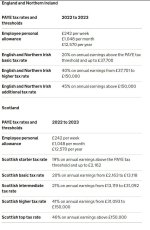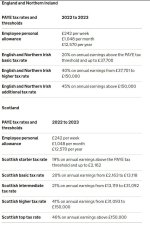Soldato
- Joined
- 30 Nov 2011
- Posts
- 11,416
That's only if you fail to inform them, if you tell them before the deadline the you just pay back the amount, if they charged you more then it was a penalty/interestYou can get stung if one of you earns over a certain amount (can't remember the figure), but it happened to me and had a massive HMRC bill which was worth more than the child benefits we go in the first place! I guess it depends on the OP's situation.




